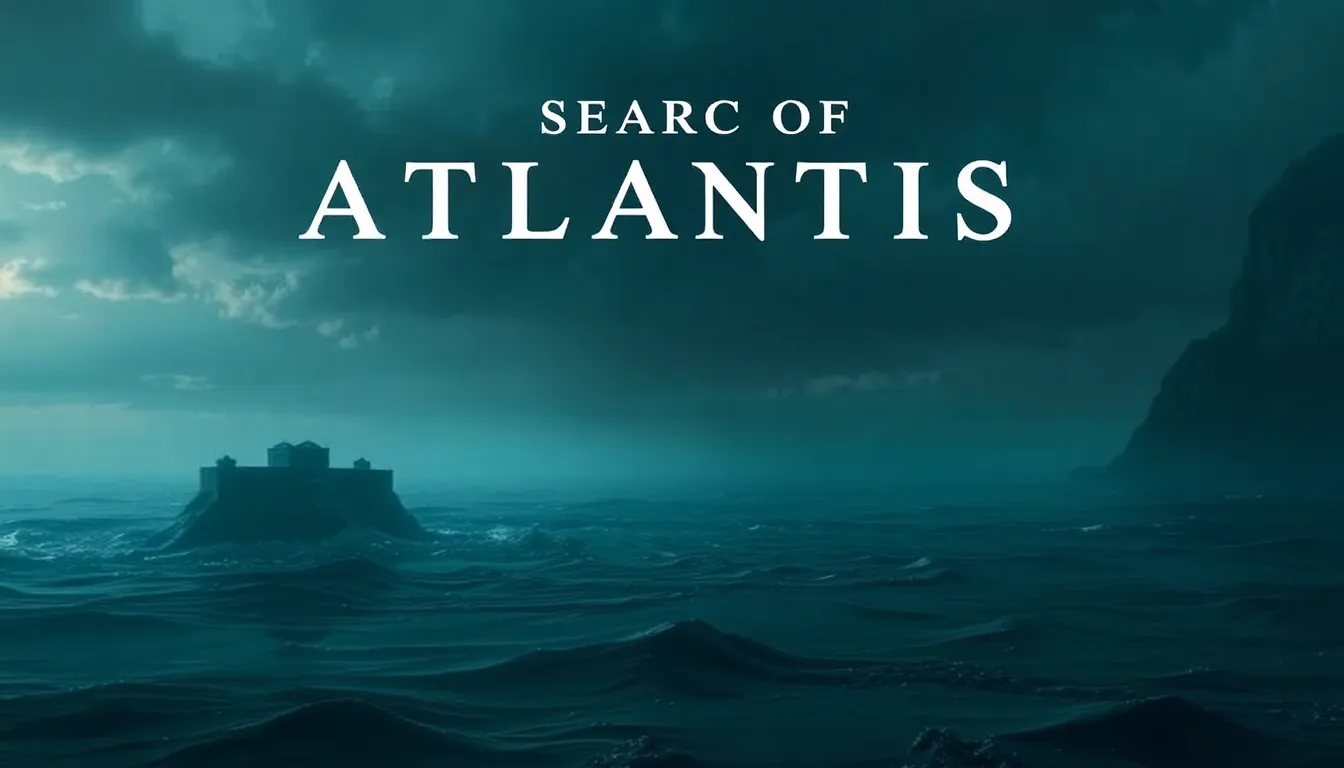In Search of Atlantis: Flood Myths and the Quest for Lost Civilizations
I. Introduction
The myth of Atlantis has captivated imaginations for centuries, representing not only a lost civilization but also a symbol of humanity’s desire to uncover secrets of the past. This ancient tale speaks of an advanced society lost to the depths of the ocean, prompting countless explorations and theories about its existence. The allure of lost civilizations reflects a deeper human fascination with what lies beyond our comprehension, driving us to seek out the remnants of societies that once thrived.
This article aims to explore the rich tapestry of flood myths across various cultures and their significance in both historical and contemporary contexts. By examining these narratives, we can uncover insights about human history, environmental change, and our quest for identity.
II. The Myth of Atlantis: Origins and Interpretations
The tale of Atlantis originates from the works of the ancient Greek philosopher Plato, specifically in his dialogues, Timaeus and Critias. In these texts, Plato describes a powerful island nation that existed about 9,000 years before his time, which eventually fell out of favor with the gods and sank into the ocean as a result of cataclysmic events.
Since Plato’s accounts, interpretations of Atlantis have varied widely:
- Historical Interpretations: Scholars have debated whether Atlantis was purely fictional or based on real events and locations, with theories ranging from its identification with the Minoan civilization on Crete to speculation linking it to the Aztecs or even Antarctica.
- Symbolism: In Western culture, Atlantis has come to symbolize both the pinnacle of human achievement and the inevitable decline that follows hubris. This duality reflects the cautionary tales embedded in the myth.
III. Flood Myths Across Cultures: A Comparative Analysis
Flood myths are a common motif in numerous cultures around the world, serving as reflections of humanity’s struggle against nature. Some notable examples include:
- Mesopotamian Flood Myth: The Epic of Gilgamesh features a great flood sent by the gods to cleanse the earth, paralleling the biblical account of Noah’s Ark.
- Hindu Mythology: The story of Manu, who is warned of an impending flood by a fish (an incarnation of the god Vishnu), emphasizes themes of rebirth and renewal.
- Native American Traditions: Various tribes have their own flood legends, often depicting a great flood that clears the earth for a new beginning.
Common themes in these myths include:
- The punishment of humanity for moral failings.
- The idea of survival and preservation of life through a chosen individual or family.
- The cyclical nature of destruction and rebirth.
Moreover, environmental factors, such as rising sea levels or catastrophic weather events, likely influenced the development of these narratives, reflecting humanity’s attempts to explain and cope with nature’s power.
IV. The Archaeological Quest: Searching for Atlantis
The search for Atlantis has inspired numerous expeditions and theories about its possible location. Some historical highlights include:
- Historical Expeditions: Explorers such as Ignatius Donnelly in the late 19th century proposed various locations, including the Mediterranean and the Caribbean.
- Notable Discoveries: Sites like Santorini, with its volcanic eruption and subsequent destruction of the Minoan civilization, have fueled speculation about Atlantis’s fate. Similarly, Doggerland, an area now submerged beneath the North Sea, is often discussed as a potential candidate.
Modern technology, including satellite imagery and underwater archaeology, has advanced the search for lost civilizations. Techniques like sonar mapping and remote sensing allow researchers to explore submerged landscapes, revealing potential sites of ancient habitation.
V. The Psychological Appeal of Lost Civilizations
The allure of lost civilizations like Atlantis taps into deep psychological needs:
- The Fascination with the ‘Other’: Humans are drawn to the unknown, and myths of lost worlds provide a tantalizing glimpse into what might have been.
- Quest for Identity: These myths often reflect cultural heritage and identity, prompting individuals to explore their own backgrounds and connections to history.
- Myth Fulfillment: Myths serve to fulfill psychological needs, providing narratives that help individuals make sense of their world and its complexities.
VI. The Role of Catastrophism in Human History
Natural disasters have historically shaped human civilizations, and flood myths often mirror real events:
- Impact of Natural Disasters: Civilizations have risen and fallen due to catastrophic events, such as earthquakes, tsunamis, and floods.
- Historical Events: Flood myths may reflect collective memories of actual floods, leading to the preservation of these narratives through generations.
- Geological Evidence: Studies of sediment layers and ancient flood patterns provide scientific backing to some mythological tales, suggesting a link between geological events and cultural narratives.
VII. The Influence of Atlantis on Popular Culture
Atlantis has permeated literature, film, and art, influencing contemporary culture in various ways:
- Literature: From Jules Verne to modern fantasy novels, Atlantis often serves as a backdrop for adventure and exploration.
- Film: Movies like Disney’s Atlantis: The Lost Empire and Aquaman highlight the fascination with lost worlds and their inherent mysteries.
- Art: Artists have long depicted the grandeur of Atlantis, representing it as an idealized civilization, often juxtaposed with themes of decay.
This resurgence of interest in mythological themes reflects a cultural longing for connection to narratives that transcend time and space.
VIII. Skepticism and Criticism: Debunking the Myth
While the allure of Atlantis is undeniable, skepticism is necessary when exploring such myths:
- Scientific Perspectives: Many scientists argue that there is no evidence supporting the existence of Atlantis as described by Plato.
- Importance of Critical Thinking: Engaging with these myths critically allows for a clearer understanding of their cultural and historical contexts.
- Dangers of Pseudoscience: The sensationalism surrounding Atlantis can lead to misinterpretations and the promotion of unfounded theories.
IX. Modern Implications: What Lost Civilizations Teach Us
The exploration of lost civilizations like Atlantis offers valuable lessons for contemporary society:
- Sustainability: Understanding the factors that led to the collapse of past civilizations can inform modern approaches to environmental stewardship.
- Relevance of Myths: Myths can provide critical insights into contemporary issues such as climate change and societal fragility, reminding us of the consequences of neglecting our environment.
In conclusion, the myth of Atlantis and the narratives of flood myths across cultures serve as powerful reminders of humanity’s enduring quest for knowledge, identity, and connection to our past. As we continue to explore these themes, we uncover not only the mysteries of lost civilizations but also the lessons they impart for the future.




